From Riotous Roots: Looking to the Future of the Rhubarb Festival
After five years at the helm, Rhubarb Festival Director Mel Hague announced this fall that 2019’s festival would be her last. The move isn’t a departure from Buddies; she’ll remain as Company Dramaturge and head of the residency program. Passing the reins will make more time to work in tandem with Artistic Director Evalyn Parry on shaping the company’s next few years.
Under Hague’s tenure, Rhubarb has maintained its riotous roots while becoming more inclusive, with an emphasis on Indigenous artists including comedy troupe Manifest Destiny’s Child and writer/performer Yolanda Bonnell. Big name international acts like Taylor Mac, Justin Vivian Bond, and Neal Medlyn (who popped up at previous fests) were largely absent, as the focus turned to local talent. Along with a contingent of younger artists, we’ve also seen a new emphasis on the voices of queer elders like Split Britches‘ Lois Weaver and creative duo Brian Cope and Charles Hayter.
Chris Dupuis sat down with Hague to chat about her tenure, the future of the fest, and becoming a Google-searchable queer.
Chris Dupuis: So. . . what’s it been like running Rhubarb?
Mel Hague: Before I started, I vastly underestimated the number of artists in the festival. With twenty pieces a year and five to ten artists per piece, that’s a lot of people you’re trying your best to support. Within the festival, we’re working towards addressing new and innovative approaches to performance, not just treating those as buzz words, so each year we’re asking again what that means in the current moment. The most surprising thing has been the Rhubarb audience and how completely game they are for the format of the festival. It’s a really energetic, kinetic space to navigate and I’m continually blown away by the amount of audience that’s really excited by this navigation and who arrive openhearted to the works being presented.

Mel Hague during the 39th Rhubarb Festival (2018) / Photo by Dahlia Katz
How do you think Rhubarb’s position within the wider sector has changed over your tenure?
Producing live performance is always a risky endeavour, particularly for younger artists. The role of Rhubarb has always been to facilitate creative risk, while protecting artists, particularly younger artists, from some of the more serious producing risks by giving them a space to test things in a way they usually can’t.
The independent arts community is a really challenging field to start a new project and Rhubarb has always been a launching pad for these ideas. The performance sector is always interested in what’s new and innovative so there’s the question of how we arrive at something new and innovative when so much has already been explored.
With all those things in mind, I think a big part of our role is to make sure artists feel supported; that they feel that sense of care in the nascent stages of these works. Not a lot of companies have the capacity to develop innovative theatre with a live audience in the way Rhubarb can, and I think that’s something that’s been true through the festival’s history and will probably continue to be in the future.
A few years ago, I was speaking with someone who’d recently taken the helm at a theatre company. I asked how the position had changed their life and they said that, suddenly, there was no such thing as a casual conversation anymore. Every exchange with an actor, writer, designer, director, or producer was inflected by that person potentially wanting something from them. What was your experience like in that regard with Rhubarb?
I often talk about this idea of being a Google-searchable queer, and I feel like I suddenly became that, without understanding what it really meant. I took on the role when I was 26, so I was still going through being in my twenties and everything that entails, while navigating this new power position. Most of my career has been about how to navigate power dynamics with artists. Resources are always finite and so the power of making decisions has to be taken into account. Anyone in this kind of position needs to acknowledge that power dynamic with artists. I can use power differently, but I can’t make it disappear. It’s a very niche power of course, running Rhubarb. But it certainly exists. And having that kind of power definitely changes the way one interacts. Everything I say somehow reflects on the festival and the position of director. You develop a self-consciousness about how you act, how you should act, and at a certain point it becomes constant.
When you take over an arts institution, there are often a lot of voices in the community saying, “Oh, this is what it should be!” In a queer context, I find that pressure is often stronger, since our community is so diverse and often at odds with itself. I’m curious to know what kind of pressures you felt in shaping the festival and how you responded to them.
I think I was blissfully unaware of any pressure like that. Rhubarb is this very specific, ethereal monster; this amorphous, constantly evolving thing. From year to year, I learned a lot of practical things around administration and scheduling, and how to navigate within Buddies to implement things. But artistically, you always start from a point of what is necessary in this specific moment. The festival is often touted as the most risky and experimental in the country, and that creates a certain kind of pressure.

Mel Hague for the 39th Rhubarb Festival (2018) / Photo by Tanja Tiziana
Why did you feel like this was the right moment to pass the festival on to someone else?
I think five years is quite a respectable term to have a job like this. It’s also the fortieth anniversary, which felt like a nice year to depart. I didn’t like the idea of leaving at forty-one. When something is about pushing boundaries, it requires a new-ness of visioning. It needs to constantly be revised. It felt like now was the right time to have that. Rhubarb has been so many things over its history and it could be anything in the future. My Rhubarb is what I thought it should be. But what does it need to become now? Curating requires a certain level of insecurity; as soon as you feel like you have something right, you don’t. So creating space for a curator to have all those same questions and challenges artists have in making their work is critical for both the future of the festival and the future of theatre in Canada.
What do you anticipate being the most significant challenges Rhubarb will need to address in the coming years?
As an artist in Canada today who’s interested in politics, my big concern is around how artists are using language, what language we use to talk about politics, and what our aims are with political, boundary pushing works. I often find we’re writing works to an imagined audience that disagrees with us. But what does that conversation look like when we imagine speaking to people who understand? That’s a big question I have. But obviously, it’s up to the new curator to determine what questions they’ll address a part of their vision.
what does that conversation look like when we imagine speaking to people who understand?
What do you feel like you’ve achieved during your time?
It’s a huge question, since I’m still on the heels of my last festival. When I started with Buddies, I was also hired to run the residency program, with the idea of making the program more entwined with what Buddies is, with our various development projects, and artists we want to support. On a personal level, I know I’ve become much more confident as a leader and as a dramaturge. But in terms of the festival? It’s hard to say, because it’s all about to change.
So we should talk again in a year?
Yeah, I’ll definitely have a clearer idea of what my impact was, once I see the festival under someone else’s hand.

Photo of Mel Hague for the 38th Rhubarb Festival (2017) / Photo by Tanja Tiziana, Design by Lucinda Wallace
The 40th Rhubarb Festival runs from February 13 – 23 at Buddies in Bad Times Theatre. For tickets and more info, click here.


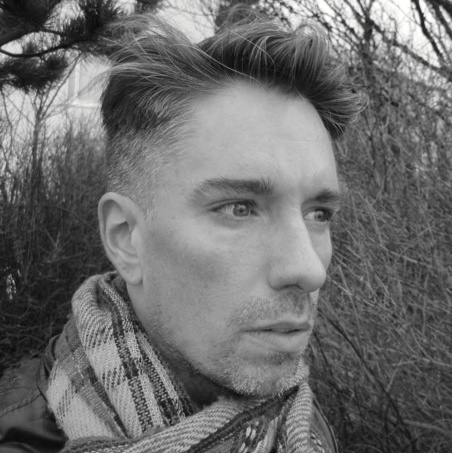
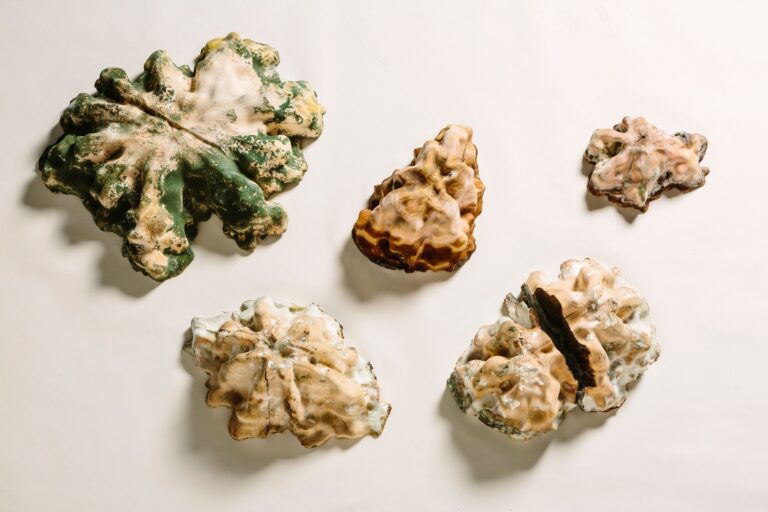
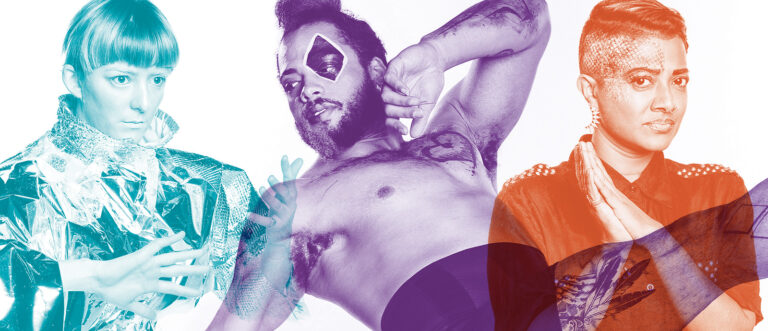



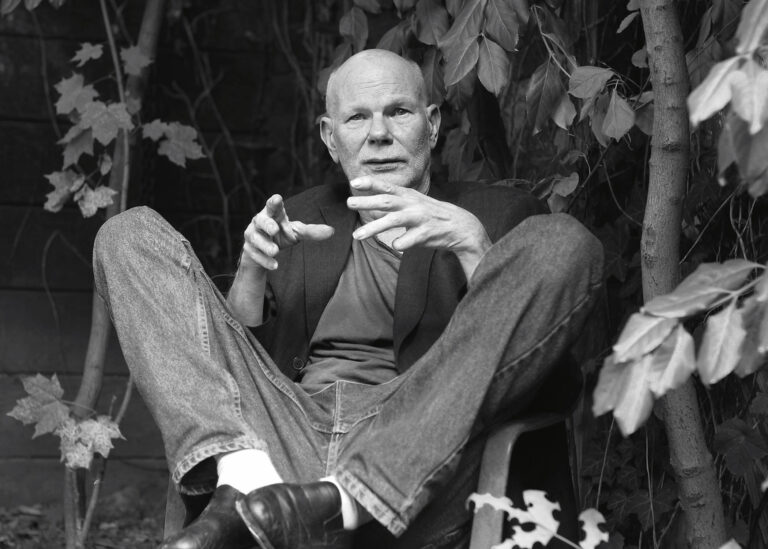
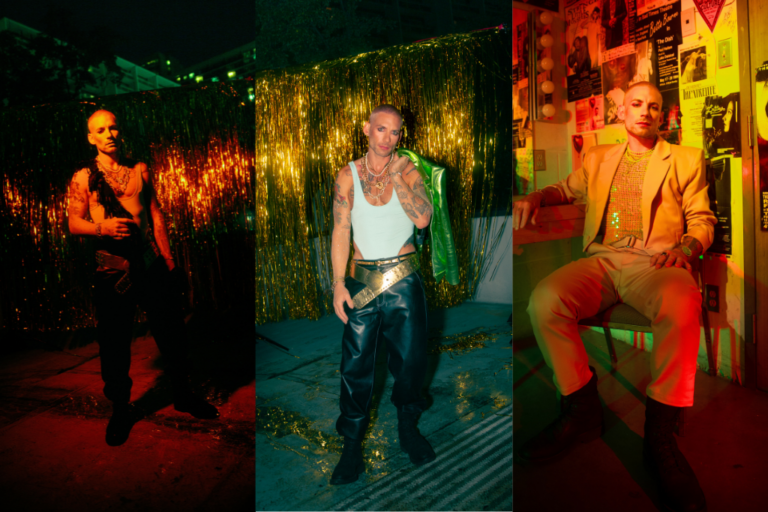
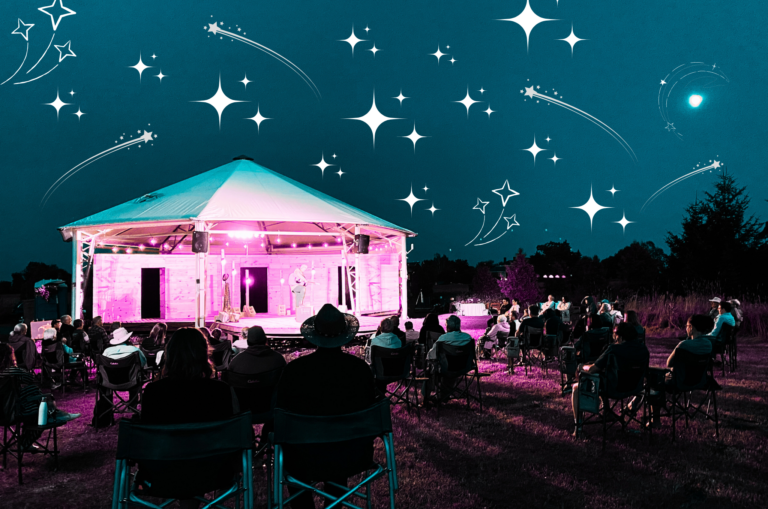
Comments